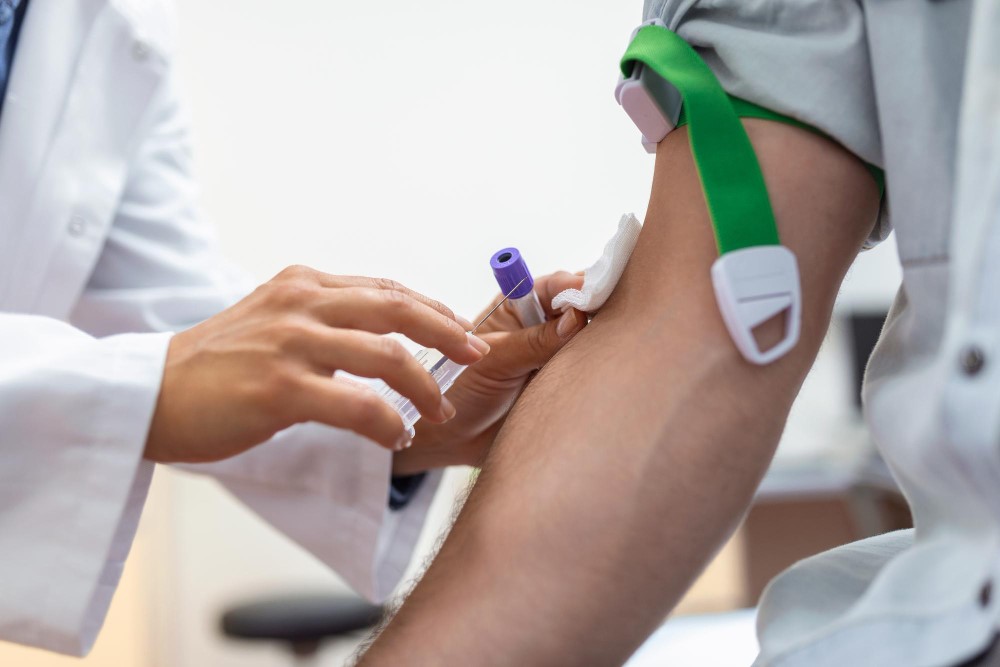Blood clotting is an essential process our body uses to prevent excessive bleeding when we are injured. Imagine getting a small cut; blood rushes to the site and stops the bleeding. This is how blood clotting works. When doctors want to understand how well your blood can clot, they perform a clotting panel test.
Think of the clotting panel test explanation as a health detective. This panel gathers clues about your blood’s ability to form clots. Just like a detective solves mysteries, this test discovers things about your blood that you can’t see.
The significance of coagulation panels is huge. They help monitor and diagnose issues related to blood clotting. They are part of a routine check to ensure your blood system is functioning properly. These tests keep you informed about your health, playing a silent yet crucial role in keeping you safe. Without these tests, unexpected bleeding or clotting could lead to serious health problems. In essence, they are essential tools for preventing and managing various health conditions related to blood clotting.
When and Why Clotting Panel Tests are Recommended
Situations arise where doctors might need to understand your blood’s clotting ability better. If you have a condition that affects blood clotting, a doctor might recommend a blood clotting test overview. This could happen if you’re scheduled for surgery or if you have symptoms like unexplained bruising, frequent nosebleeds, or prolonged bleeding following injuries.
Another scenario demanding a clotting panel test explanation is when there’s a family history of clotting disorders. Monitoring your blood’s clotting function allows your doctor to foresee potential problems, making this test vital in predicting and preventing future health issues.
Understanding coagulation panels plays a significant role in tracking medical conditions. Tests help manage patients with known clotting issues, ensuring they receive necessary treatments and adjustments in medications. If you’re taking medicine like blood thinners, regular testing ensures you’re on the right dose.
For routine health maintenance, factors affecting clotting tests might include lifestyle elements like diet and exercise. Keeping track of these factors helps in staying informed about one’s health status and taking corrective measures if needed. It’s beneficial in ensuring overall wellness and quick action if things go awry.
The Process and Interpretation of a Clotting Panel Test
So, how does this test work step-by-step? First, a doctor or nurse will use a small needle to draw blood from your arm. It’s a quick procedure, much like a typical blood test. Next, this sample is sent to a laboratory where experts conduct a coagulation profile explanation.
In the lab, technicians evaluate how long it takes for your blood to clot. They also measure the amount of platelets, which are tiny cell fragments that help stop bleeding. Each part of the clotting panel test insights provides information about your blood’s clotting function.
In simple terms, interpreting these results means understanding how well your body can form clots. Clotting test interpretation is crucial because it indicates whether your blood is clotting too quickly or too slowly, each carrying different health implications.
When differentiating normal and abnormal outcomes, a normal result means your blood clots within the expected timeframe, suggesting balanced coagulation. If it clots too slowly, it could indicate conditions like hemophilia or a vitamin K deficiency. Fast-clotting blood might suggest a risk for conditions like thrombosis or heart disease.
The Impact of Clotting Panel Test Results on Medical Decisions
Understanding these outcomes helps doctors make key treatment choices. For example, if your blood clots too slowly, your doctor may adjust medications like blood thinners. This action helps prevent excessive bleeding and ensures medication efficacy. Adjustments are part of the clotting panel test insights used to tailor treatment plans effectively.
These tests also have a significant diagnostic role. They help in identifying underlying medical conditions you might not be aware of. Conditions related to liver function, clotting disorders, and vitamin deficiencies can be flagged with the results of a blood clotting test overview.
Ultimately, encouraging informed health decisions is another benefit of understanding coagulation panels. Having knowledge of your blood’s clotting ability empowers you to discuss health risks and treatment options with your doctor. With awareness, you make better choices about diet, lifestyle, and treatment measures.
In conclusion, the clotting panel test explanation serves as a guardian of your health, providing essential insights into your blood’s clotting function. It’s a simple, yet powerful, tool for monitoring and managing health, keeping you informed, and prepared for any potential issues.
